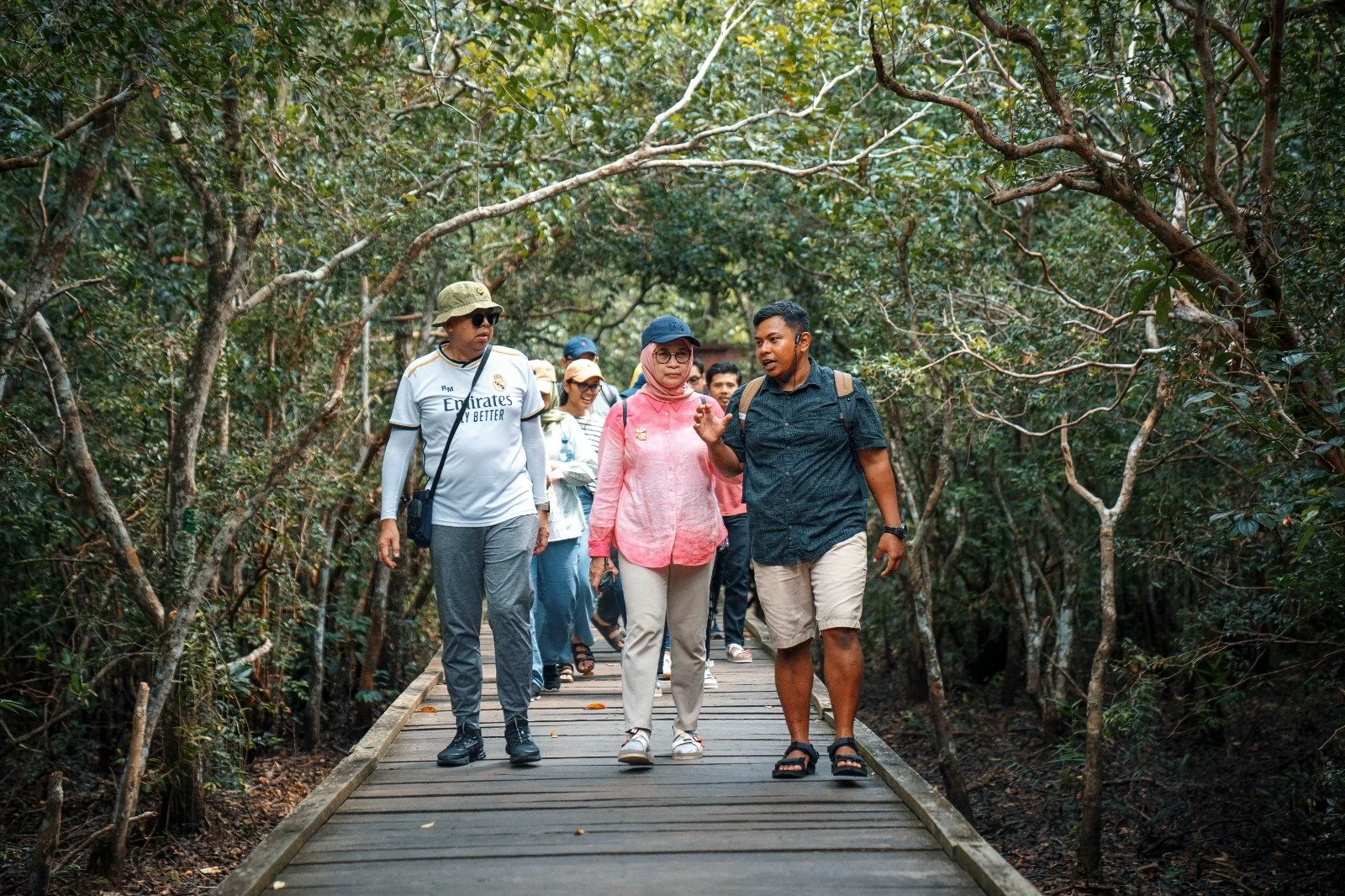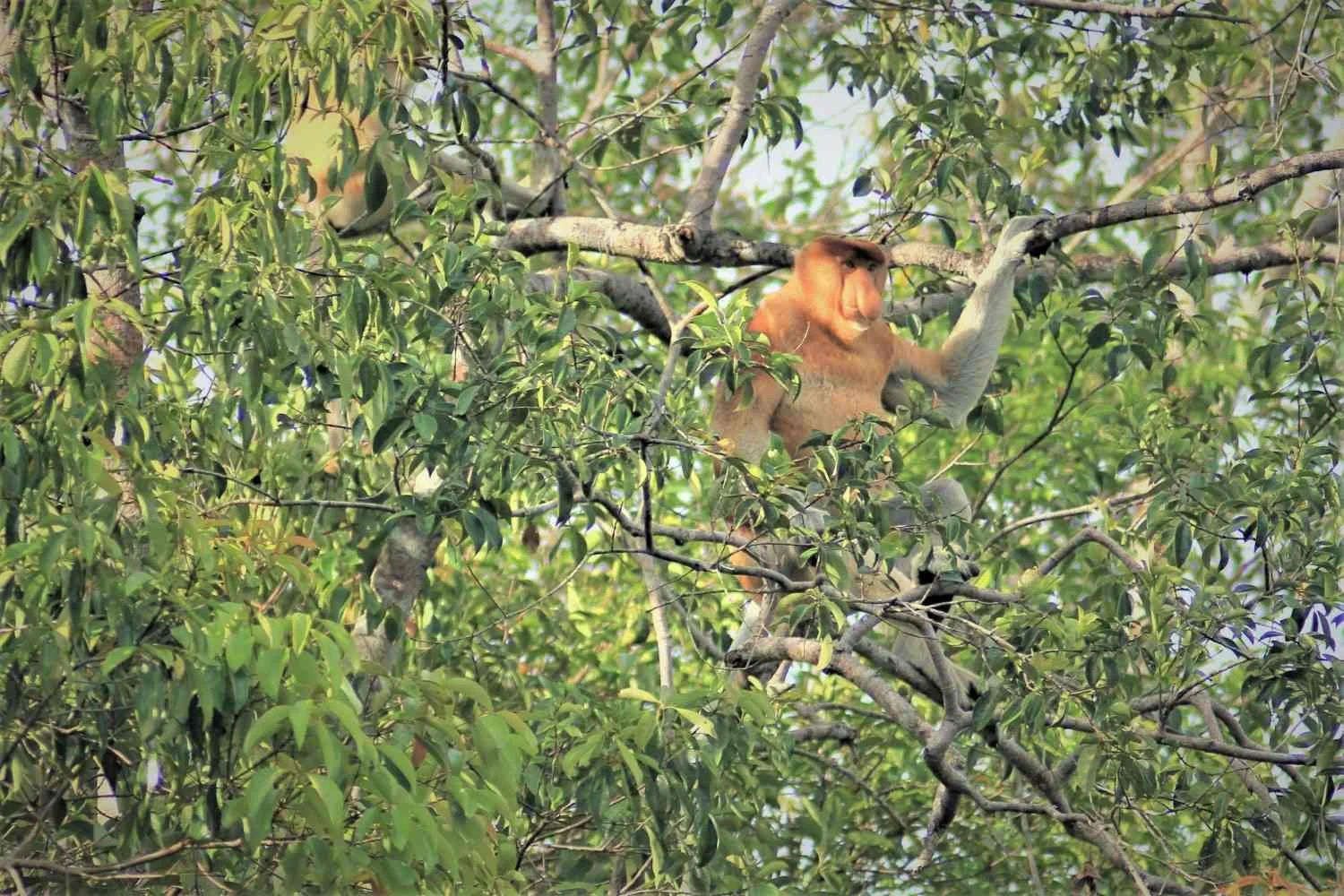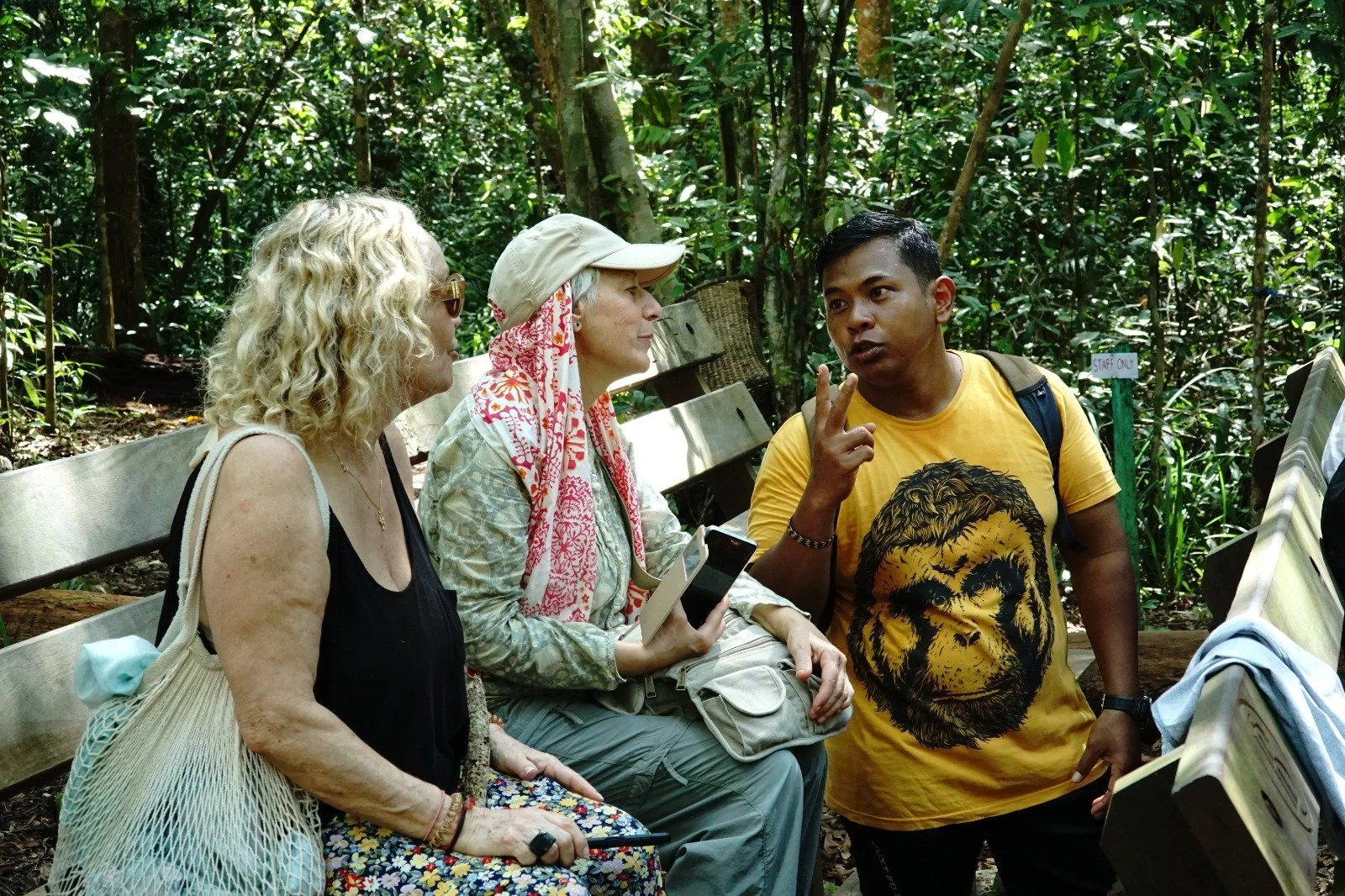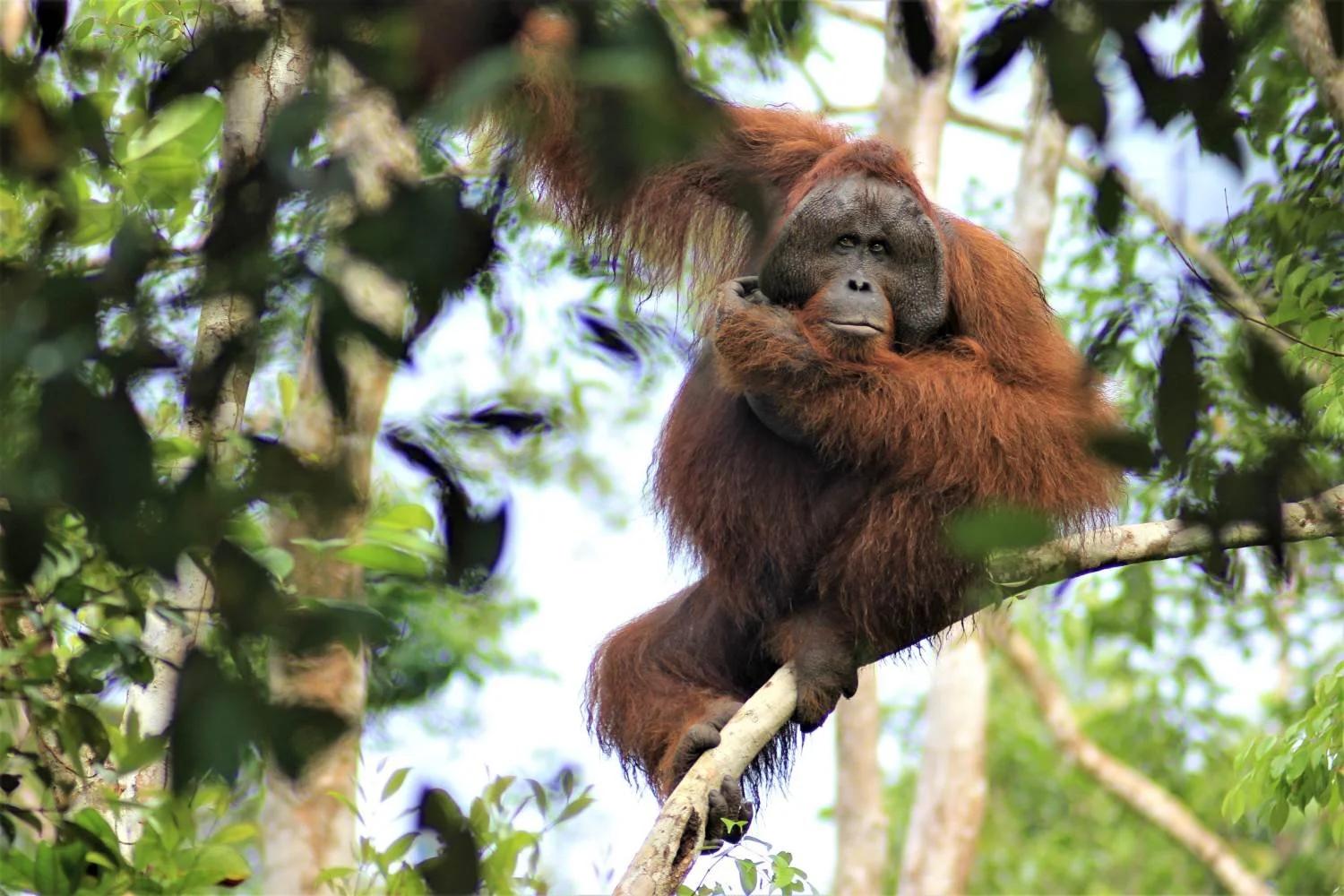“Together, we can share these stories with the world and inspire the next generation to protect the wildlife and the places we all love.”
Arif, Tour Guide and Founder of Orangutan Applause
The project [Story Animals] got me thinking about the stories I’ve heard over the years, especially from the local people. For example, the Malay people in Kumai tell stories passed down about how animals like crocodiles are part of a family's heritage, how one of their ancestors had twins: one stayed on the land and became a father, and the other stayed in the water as a crocodile. Because of that, they respect and protect those animals. This year there was an accident there where an 8-year old boy was attacked and killed by a crocodile. Later the shaman held a traditional ceremonial processions to call the crocodile to come back, and sure enough it returned with the body of the child.
I share these stories with tour groups sometimes. They can help encourage people to care more about conservation, not just because they should, but because the stories touch something deeper in all of us.
The way you wanted to tell these stories really spoke to me. You didn’t want to make just another wildlife documentary. You weren't just showing the animals, you were telling their stories, talking about their connection to people and to local traditions. I’ve seen first hand how such stories can make a difference. Like if I share with tour groups how orangutans care for their young, how when a baby dies the mother might hold onto it for days or weeks, even after it starts to smell, because she can’t bear to let go. It’s heartbreaking, but it also shows how much love animals are capable of.
When people hear things like this, they start to see animals not as something separate from us, but as living beings with emotions, and families and a place in the world.
Photo by Arif
At the end of the day, conservation is about more than just teaching people what to do or not do, but about reaching their hearts through storytelling. It’s about helping them see the connection between humans and wildlife, and changing the way they think about conservation. Together, we can share these stories with the world and inspire the next generation to protect the wildlife and the places we all love.
I care so much about nature because I see myself as part of it. We’re all part of the same universe, breathing the same air, drinking the same water. Everything we are, our bodies, our blood, our bones, comes from nature.
To live in harmony with that, to protect it, is essential to our happiness and survival.
I didn’t always think this way. Growing up, I wasn’t particularly connected to nature. But in high school, my biology teacher chose me to represent the school in a science competition, so I started learning more about biology, and the more I learned, the more I understood how interconnected we are with nature. My mother, who worked in healthcare, also influenced me by sharing her stories about helping people.
The combination of understanding the science of life and wanting to help others led me to Borneo, the largest island in Indonesia, where I felt there was so much to explore and protect. And that’s what I’ve been doing ever since.
Photo by Orangutan Applause
I never thought I’d end up in tourism though. I always dreamed of getting a scholarship to study biology abroad, but life had other plans. I started my career working for a conservation NGO in the jungle, but we had some serious conflicts with locals over illegal mining. One time, a local group set fire to our guard post because we were involved in arresting some of their people.
That experience made me realize that conservation can’t just be about telling people what not to do.
It has to be about finding ways for people to benefit from conservation, too.
That’s where ecotourism comes in. It’s a way for locals to earn a living while protecting the environment. So, I decided to start Orangutan Applause. I wanted to do things differently. The old style of tours was basic: there wasn’t much attention to comfort, food quality, or creating a meaningful experience for visitors. Our focus is on providing high-quality experiences: clean, comfortable boats, great food, and most importantly, knowledgeable guides who can offer rich, engaging narratives about the animals and the forest. It wasn’t easy in the beginning and there were times I almost gave up, but I’m glad I kept going. I’m happy with where we are now
Photo by Orangutan Applause
Ecotourism has been a big part of the change here in Tanjung Puting. Without it, I don’t think we’d have as much of the forest left as we do today. The National Park has grown from 100,000 hectares to over 400,000, and that’s largely because of the benefits that tourism brings.
Photo by Arif
It brings money into the local economy, creates green jobs, but it’s not just about economics. It’s also about awareness, in that it helps people see the value of preserving the jungle. When I first started guiding tours here, I was surprised to learn that many of the local people had never even seen an orangutan. They didn’t know much about them and couldn’t understand why foreigners would travel so far, spend money, and sleep in basic accommodations just to catch a glimpse of these animals. It seemed crazy to them! But over time, as they saw more tourists coming, they started to realize: maybe orangutans are important.
Tourism acts as a kind of campaign for conservation. Slowly, more locals began to visit the forest themselves, curious about these creatures. By 2019, before the pandemic, we had 11,000 domestic visitors, almost as many as the 14,000 foreign visitors. That’s a huge shift from before and shows that tourism can make people, even locals, care about wildlife and the forest in a new way. For example, when we had massive fires in the National Park due to El Niño in 2015, it wasn’t just the park rangers who fought to protect the forest, it was the locals, too. Many of them had not been asked to help, they came on their own, bringing whatever resources they had. The tour operators, the boat crews, the villagers, they all collected money to buy supplies and came to fight the fires. They pumped water from the rivers, built makeshift pools, and did whatever they could to save the forest.
That’s what ecotourism does. It makes people care, because they know that their livelihoods, and the future of their children, depend on that forest.
What I hope above all is that they go home and tell their stories. When people return to their countries and share their experiences of cruising through the jungle, seeing orangutans, and feeling the connection to nature, they inspire others to care. That’s the real impact.
Photo by Orangutan Applause
More Stories











